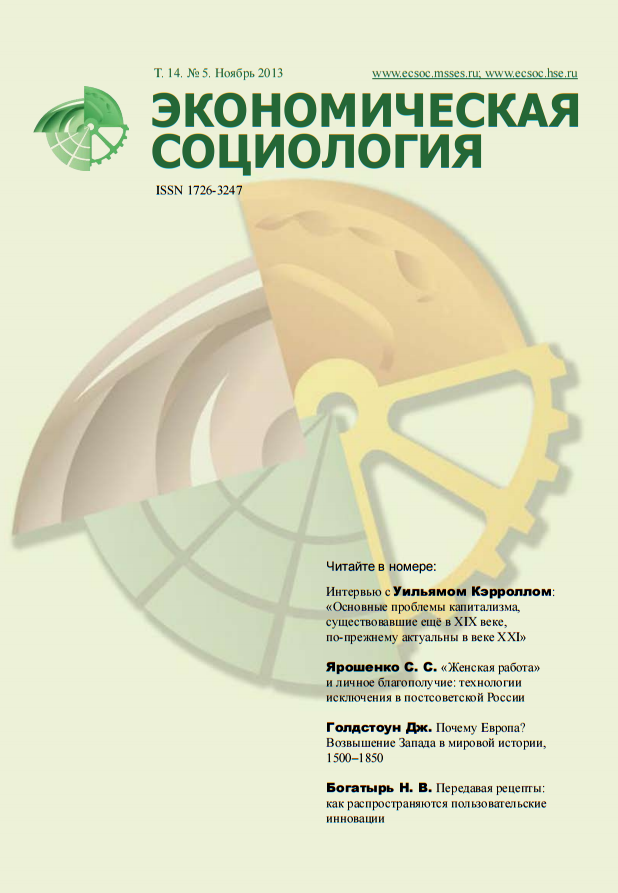“Women’s Work” and Personal Well-Being: Technology of Exclusion in Post-Soviet Russia
Keywords:
Women's work, care, gender exclusion regime, well-being, social transformation, post-Soviet Russia
Abstract
This paper examines the features of post-soviet women’s position in the labour market and the changes in their employment strategies during the last decade. Using the data from the five waves of longitudinal qualitative research, conducted in the period from 1999 to 2010 in one of Russia’s region among registered poor, the author argues that under the conditions of market service economy the ability of women to manage life situations with their work are reduced. The author shows that the transition of women in the market services sector does not improve wages, that their acceptance the “universal worker” norms does not guarantee high returns and does not compensate costs associated with the rejection of caring for others. The pattern of gendered exclusion, or the way of patriarchal domination is changing. In the Soviet era, a special governmental support forwomen stimulated their inclusion in the scope of employment and minimized the impact of sex differences on the working career. At the same time, women were segregated in the sectors of social reproduction and their responsibility for maintaining the household was preserved. In competitive business environment the special position of women between work and home, based on the care for others, becomes a resource for surviving and a source of profit.
Published
2013-12-03
How to Cite
YaroshenkoS. (2013). “Women’s Work” and Personal Well-Being: Technology of Exclusion in Post-Soviet Russia. Journal of Economic Sociology, 14(5), 23-58. https://doi.org/10.17323/1726-3247-2013-5-23-58
Section
New Texts













